CORPORATE ACTION
Plastic Waste Report Highlights Challenges Posed By Single-Use Plastic Pollution
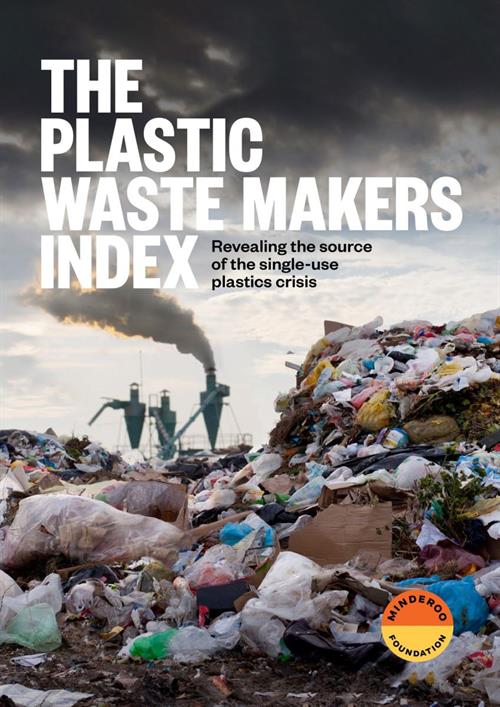 A new front has opened in the war against single-use plastic.
A new front has opened in the war against single-use plastic.A report by The Minderoo Foundation Pty Ltd. reveals the massive contribution to single use plastic made by a small number of polymer makers. The report, The Plastic Waste Makers Index, highlights five significant findings about the plastics industry and plastic pollution.
These include the fact that just 20 polymer manufacturers accounted for more than 50% of all single-use plastic waste generated worldwide in 2019. Minderoo Identifies these companies as the source of the single-use plastic crisis.
It also concludes that the world’s biggest investors and banks play an enabling role in the single-use plastics crisis.
The report also criticized the “collective industry failure” to move away from fossil-fuel-based feedstocks and plans to expand the production capacity of virgin polymer that it says pose a threat to the creation of a circular plastics economy.
Minderoo call for regulation and policy changes, specifically requiring polymer producers and investors and banks to disclose involvement in the production or processing of single-use plastic.
The authors say single-use plastic waste is an unshakable geopolitical problem that will require enormous political will to be dismantled.
A forward by Al Gore helped the report receive wide coverage.[Image Credit: © The Minderoo Foundation Pty Ltd.]
CORPORATE ACTION: AmorePacific
Amorepacific Opens Concept Store With Refill Station
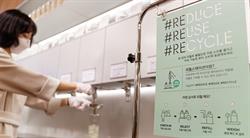
Amorepacific has opened its AMORE STORE Hair&Body concept store in Seoul, South Korea. The store comes with a “Refill Station” that sells HAPPY BATH and mise en scène shampoo and body wash products. The refill system uses a clear container made with recycled plastic.[Image Credit: © Amorepacific ]
CORPORATE ACTION: Beiersdorf
Beiersdorf Adopts SABIC’s TRUCIRCLE Polypropylene For Packaging Of Nivea Skincare Line
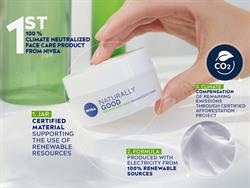 Beiersdorf announced plans to change packaging of its NIVEA Naturally Good line of facial skincare products from fossil-based virgin plastic to certified renewable polypropylene from SABIC’s TRUCIRCLE portfolio. Starting in June 2021, the products with the environment-friendly packaging will be available in 30 countries. The step is expected to help the company achieve its goal of using 50% less virgin plastic by 2025, with the resulting reduction in packaging-related carbon dioxide emission representing a step toward “climate neutralization”.[Image Credit: © Beiersdorf]
Beiersdorf announced plans to change packaging of its NIVEA Naturally Good line of facial skincare products from fossil-based virgin plastic to certified renewable polypropylene from SABIC’s TRUCIRCLE portfolio. Starting in June 2021, the products with the environment-friendly packaging will be available in 30 countries. The step is expected to help the company achieve its goal of using 50% less virgin plastic by 2025, with the resulting reduction in packaging-related carbon dioxide emission representing a step toward “climate neutralization”.[Image Credit: © Beiersdorf]
CORPORATE ACTION: Clorox
Recyclops Closes $3-Million Seed Round , Agrees To Help Glad Cut Environmental Footprint
.png&width=250&height=146) Recyclops has closed a $3-million seed round investment led by venture capital firm Lerer Hippeau and Glad, a brand of The Clorox Company. The investment will help the high-tech sustainability and recycling company to enhance its exclusive technology and expand its operations to 20 more states. Recyclops also partnered with Glad to help the brand reduce its environmental footprint by 2030.[Image Credit: © The Clorox Company]
Recyclops has closed a $3-million seed round investment led by venture capital firm Lerer Hippeau and Glad, a brand of The Clorox Company. The investment will help the high-tech sustainability and recycling company to enhance its exclusive technology and expand its operations to 20 more states. Recyclops also partnered with Glad to help the brand reduce its environmental footprint by 2030.[Image Credit: © The Clorox Company]
CORPORATE ACTION: Coca-Cola
Coca-Cola Sees Recycling As Critical Component Of Sustainability Efforts
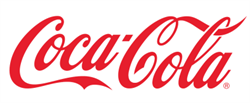 Coca-Cola sustainable packaging program director, Nicole Ray, said the company will achieve about 20% recycled PET packaging use by the end of 2021. Ray also said recycling is a “critical component” in Coca-Cola’s sustainability efforts, with materials recovery being a main focus of the company’s World Without Waste goal first set in 2018. Coca-Cola aims to achieve 25% PCR by 2025 and 50% by 2030 for all its packaging; however, results of the latest Ellen MacArthur Foundation audit revealed it is currently at 10% PCR.[Image Credit: © Coca-Cola Company]
Coca-Cola sustainable packaging program director, Nicole Ray, said the company will achieve about 20% recycled PET packaging use by the end of 2021. Ray also said recycling is a “critical component” in Coca-Cola’s sustainability efforts, with materials recovery being a main focus of the company’s World Without Waste goal first set in 2018. Coca-Cola aims to achieve 25% PCR by 2025 and 50% by 2030 for all its packaging; however, results of the latest Ellen MacArthur Foundation audit revealed it is currently at 10% PCR.[Image Credit: © Coca-Cola Company]
CORPORATE ACTION: Kao
Unilever Japan Joins Forces With Kao Corporation To Launch Recycling Program In Tokyo
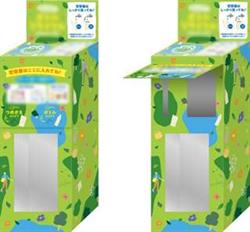
Unilever Japan has partnered with Kao Corporation to launch a joint recycling program aimed at promoting a circular economy for plastic packaging. On June 1, 2021, the companies will start collecting used bottles of personal and household care products in Tokyo’s Higashi-Yamato City. Collected bottles will be recycled into materials for making new bottles.[Image Credit: © Kao Corporation]
CORPORATE ACTION: Kellogg
Kellogg Announces Pricing Of First Sustainability Bond
 Kellogg Company revealed it has priced a 300-million euro 8-year Sustainability Bond with an annual interest of 0.50%. Second-party evaluator Sustainalytics reviewed the company’s Sustainability Bond Framework. Kellogg plans to use the net proceeds from the bond issue to help finance major achievements already made toward its Better Days CSR commitments by 2030.[Image Credit: © Kellog's]
Kellogg Company revealed it has priced a 300-million euro 8-year Sustainability Bond with an annual interest of 0.50%. Second-party evaluator Sustainalytics reviewed the company’s Sustainability Bond Framework. Kellogg plans to use the net proceeds from the bond issue to help finance major achievements already made toward its Better Days CSR commitments by 2030.[Image Credit: © Kellog's]
CORPORATE ACTION: L’Oréal
L’Oréal Paris Announces New Sustainability Program, Environmental Goals For 2030
CORPORATE ACTION: PepsiCo
PepsiCo BottleLoop Offers On-Demand Collection Of Recyclable Materials

PepsiCo Recycling has introduced the PepsiCo BottleLoop, a program designed to provide PepsiCo customers with easy and accessible recycling services. The program will also deal with logistical challenges related to recycling, as well as reduce plastic packaging waste. PepsiCo BottleLoop, equipped with technology from Replenysh, will offer on-demand collection of recyclable materials from member locations.
[Image Credit: © PepsiCo]
CORPORATE ACTION: Other
NEXE Mounts Proprietary Assembly Line For Manufacture Of 100% Compostable Nespresso-Compatible Pods
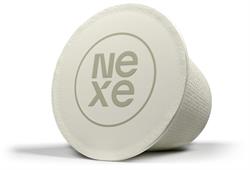
NEXE Innovations Inc. said it has installed its own equipment for the manufacture the company’s fully compostable Nespresso-compatible pods. The company also said the assembly line has passed its Site Acceptance Test and will enable it to launch the pods in the third quarter of 2021.[Image Credit: © NEXE INNOVATIONS]
Izzy Zero Waste Beauty Positions Itself As World’s First Fully Environment-Friendly Beauty Brand
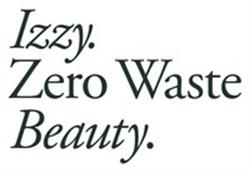
Izzy Zero Waste Beauty introduced its first product, the Zero Waste Mascara, which also marks the company’s launch as the “world’s first fully reusable, sustainable, and direct-to-consumer beauty brand”. The company uses a “cyclical subscription business model” and has a supply chain located within a 400-mile radius and relies on “fully reusable components” to reduce the company’s impact on the environment.[Image Credit: © Izzy Beauty Inc.]
Sk*p Introduces Recyclable Paper-Based Container, Pushes Beauty Industry To Step Away From Plastic Packaging
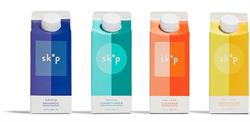 Haircare and personal care brand sk*p will be launched on Earth Day 2021. The company aims to “break the beauty industry’s addiction to plastic”. With its BeautyCarton, the company is the first to offer consumers 100% recyclable paper-based carton containers that can survive in the shower. The company manufactures the carton container, which has more than 81% FSC-certified paper, at its own factory in New Jersey.[Image Credit: © SKP]
Haircare and personal care brand sk*p will be launched on Earth Day 2021. The company aims to “break the beauty industry’s addiction to plastic”. With its BeautyCarton, the company is the first to offer consumers 100% recyclable paper-based carton containers that can survive in the shower. The company manufactures the carton container, which has more than 81% FSC-certified paper, at its own factory in New Jersey.[Image Credit: © SKP]
TerraCycle Collaborates With Sanofi Consumer Healthcare To Launch Recycling Programs
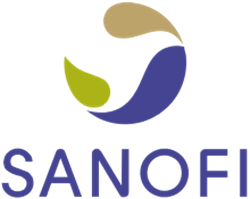
TerraCycle has joined forces with Sanofi Consumer Healthcare to launch national recycling programs for the company’s personal care product packaging and aerosol containers. This partnership aims to encourage consumers to recycle their empty Gold Bond, Cortizone-10, and Selsun Blue personal care products. Consumers can download free shipping labels to send their empty packaging to recycling centers.[Image Credit: © Sanofi Consumer Healthcare]
Just Add Water System Expands Line Of Refillable Household Cleaners
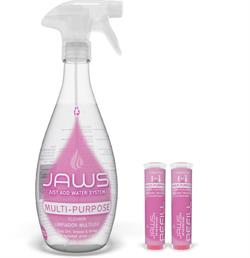
JAWS, or Just Add Water System, has announced eight concentrated cleaners for its refillable, cartridge-based system. The company’s JAWS Multi-Purpose Cleaner with Fabulous Lavender fragrance is designed to work in various kinds of hard surfaces, such as stainless steel, laminate floors, and ceramic tiles. Consumers can help reduce plastic packaging by using the company’s refillable and reusable spray bottles.[Image Credit: © https://www.prnewswire.com/news-releases/adding-to-their-line-of-refillable-household-cleaners-jaws-just-add-water-system-introduces-a-new-multi-purpose-cleaner-301274492.html]
CAMPAIGNS, COMMITMENTS & NGOs
Earth Day 2021 Highlights Beauty Industry’s Sustainability Pledges And Actions
 For Earth Day 2021, CosmeticsDesign-Europe reviewed sustainability actions and pledges made by beauty and personal care companies during the COVID-19 pandemic. In June 2020, L'Oréal unveiled its “For the Future” sustainability plan for 2030, detailing the company’s plans to replace all plastic packaging with recycled or bio-based materials. L'Oréal also said it plans to make sure that 95% of its ingredients were bio-based, derived from abundant minerals, or circular in nature. Unilever also released its 2030 climate goals, seeking to achieve net-zero emissions across all of its products by 2039. In September 2020, Johnson & Johnson highlighted its 2030 goals on plastic packaging, ingredient transparency, and preventive health.[Image Credit: © Earth Day]
For Earth Day 2021, CosmeticsDesign-Europe reviewed sustainability actions and pledges made by beauty and personal care companies during the COVID-19 pandemic. In June 2020, L'Oréal unveiled its “For the Future” sustainability plan for 2030, detailing the company’s plans to replace all plastic packaging with recycled or bio-based materials. L'Oréal also said it plans to make sure that 95% of its ingredients were bio-based, derived from abundant minerals, or circular in nature. Unilever also released its 2030 climate goals, seeking to achieve net-zero emissions across all of its products by 2039. In September 2020, Johnson & Johnson highlighted its 2030 goals on plastic packaging, ingredient transparency, and preventive health.[Image Credit: © Earth Day]
CWSC Calls For Packaging Industry’s Adoption Of Advanced Recycling Technologies
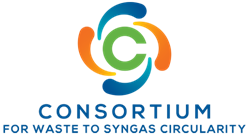 The Consortium for Waste to Syngas Circularity seeks to change waste handling in the long-term by making advanced recycling technologies the main pillar of waste-handling solution for the packaging industry. The CWSC aims to accomplish this goal by taking several steps, including encouraging the industry to adopt total transformation of all types of waste; pushing for a true circular model for waste recycling while respecting land, ground water, and climate without sacrificing the quality of recycled materials; and promoting “green methanol” from waste as the main venue for integration of recycled materials into products and packages from science-based waste to syngas to methanol process.[Image Credit: © Consortium For Waste To Syngas Circularity]
The Consortium for Waste to Syngas Circularity seeks to change waste handling in the long-term by making advanced recycling technologies the main pillar of waste-handling solution for the packaging industry. The CWSC aims to accomplish this goal by taking several steps, including encouraging the industry to adopt total transformation of all types of waste; pushing for a true circular model for waste recycling while respecting land, ground water, and climate without sacrificing the quality of recycled materials; and promoting “green methanol” from waste as the main venue for integration of recycled materials into products and packages from science-based waste to syngas to methanol process.[Image Credit: © Consortium For Waste To Syngas Circularity]
Private Investment Capital Needs To Play Leading Role In Creating Plastic Recycling Market In Emerging Economies
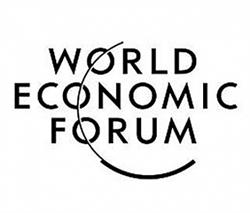 Inadequate private investment capital is one of the biggest obstacles to a profitable plastic recycling market in emerging economies. Mainstream financial institutions and investors must invest in recycling ventures to meet the demand for plastic recycling. Investment firms can help show that it makes financial sense to invest in recycling and the circular economy in emerging markets by creating track records for new investments and working to build stronger pipelines. They can also support the transition to a circular economy by creating financial instruments, such as futures and options; underwriting or investing in issuances; and acting as advisers, underwriters, or investors in spot market trading venues for recycled plastics.[Image Credit: © World Economic Forum]
Inadequate private investment capital is one of the biggest obstacles to a profitable plastic recycling market in emerging economies. Mainstream financial institutions and investors must invest in recycling ventures to meet the demand for plastic recycling. Investment firms can help show that it makes financial sense to invest in recycling and the circular economy in emerging markets by creating track records for new investments and working to build stronger pipelines. They can also support the transition to a circular economy by creating financial instruments, such as futures and options; underwriting or investing in issuances; and acting as advisers, underwriters, or investors in spot market trading venues for recycled plastics.[Image Credit: © World Economic Forum]
New Guidance Expands List Of Plastic Packaging Collected In-Store In UK
.png&width=250&height=131) The non-profit WRAP has issued a new guidance expanding the range of plastic bags and wrapping collected at UK supermarkets for recycling. The new list will include salad bags, crisp packets, and biscuit wrappers. The move is expected to improve the current rate of 6% of plastic bags and wrapping recycled across the country, with flexible plastic packaging accounting for 20% of all plastic packaging released on the market. Also, the new guide is expected to increase public attention to in-store collections.[Image Credit: © WRAP]
The non-profit WRAP has issued a new guidance expanding the range of plastic bags and wrapping collected at UK supermarkets for recycling. The new list will include salad bags, crisp packets, and biscuit wrappers. The move is expected to improve the current rate of 6% of plastic bags and wrapping recycled across the country, with flexible plastic packaging accounting for 20% of all plastic packaging released on the market. Also, the new guide is expected to increase public attention to in-store collections.[Image Credit: © WRAP]
Ellen MacArthur Foundation, British Council Hold First Circular Design Assembly
.png&width=250&height=82) The Ellen MacArthur Foundation partnered with the British Council to hold its first meeting of the Circular Design Assembly, a gathering of 13 leading proponents of international design for the circular economy. The Circular Design Assembly was organized to serve as a “platform for international collaboration” for finding ways to integrate circular economy principles into their design processes. Events related to the meeting are designed to inspire designers and other creatives to support the transition to a circular economy.[Image Credit: © Ellen MacArthur Foundation ]
The Ellen MacArthur Foundation partnered with the British Council to hold its first meeting of the Circular Design Assembly, a gathering of 13 leading proponents of international design for the circular economy. The Circular Design Assembly was organized to serve as a “platform for international collaboration” for finding ways to integrate circular economy principles into their design processes. Events related to the meeting are designed to inspire designers and other creatives to support the transition to a circular economy.[Image Credit: © Ellen MacArthur Foundation ]
CONSUMER & PUBLIC OPINION
Post-COVID Consumers Ready To Pay For Environment-Friendly Future, Survey Shows
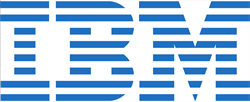 The COVID-19 pandemic has made consumers more willing to pay for sustainability, according to a new survey by IBM Institute for Business Value. Results of the survey revealed 55% of the more than 14,000 consumers from nine countries said sustainability is a “very or extremely important” factor when choosing a brand. This is 22% higher than the consumers who were surveyed before the pandemic. Also, 54% of consumers said they are willing to pay a higher price for brands that are sustainable or environmentally responsible, while 71% of employees or those seeking employment are willing to accept a lower salary to work at an environment-friendly company.[Image Credit: © IBM Institute for Business Value]
The COVID-19 pandemic has made consumers more willing to pay for sustainability, according to a new survey by IBM Institute for Business Value. Results of the survey revealed 55% of the more than 14,000 consumers from nine countries said sustainability is a “very or extremely important” factor when choosing a brand. This is 22% higher than the consumers who were surveyed before the pandemic. Also, 54% of consumers said they are willing to pay a higher price for brands that are sustainable or environmentally responsible, while 71% of employees or those seeking employment are willing to accept a lower salary to work at an environment-friendly company.[Image Credit: © IBM Institute for Business Value]
MARKET NEWS
UK Retailers, Manufacturers Show Greater Interest In Refillable Products
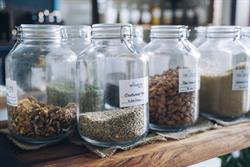 Retailers and consumer goods companies are expanding their packaging-free and refillable product offering. As of April 2021, UK retailers, including Aldi, Waitrose, and Tesco, are conducting trials or plan to do so, while online zero-waste grocery stores are exhibiting strong growth. Consumer interest and concerns about climate change are helping drive this growth, with 38% of UK consumers expressing awareness about the issue, according to Forrester research. Another factor driving interest in refillable products is the extended producer responsibility set to be enforced in 2023 that will require packaging makers to the pay the costs of its disposal. Some of the issues that can limit adoption of refillable products include logistical challenges, the need for “big investment” when starting a refillable operation, and the need to reduce the physical size of collections.[Image Credit: © Anna Tarazevich]
Retailers and consumer goods companies are expanding their packaging-free and refillable product offering. As of April 2021, UK retailers, including Aldi, Waitrose, and Tesco, are conducting trials or plan to do so, while online zero-waste grocery stores are exhibiting strong growth. Consumer interest and concerns about climate change are helping drive this growth, with 38% of UK consumers expressing awareness about the issue, according to Forrester research. Another factor driving interest in refillable products is the extended producer responsibility set to be enforced in 2023 that will require packaging makers to the pay the costs of its disposal. Some of the issues that can limit adoption of refillable products include logistical challenges, the need for “big investment” when starting a refillable operation, and the need to reduce the physical size of collections.[Image Credit: © Anna Tarazevich]
PACKAGING REDESIGNS
Kiehl’s Introduces Refillable Pouches For Six Beauty And Personal Care Products
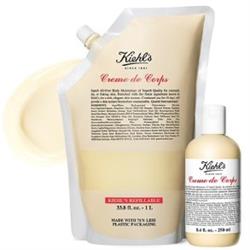
Kiehl’s introduced its Pouch Refillables for six beauty and personal care products. The company said the refillable pouches use 80% less plastic than its single-use product and contain 2-5 times the product of a regular 250ml bottle. Products added to the refill system include Crème de Corps body moisturizers, Grapefruit Hand Body Lotion, Amino Acid Shampoo & Conditioner, and Grapefruit Body Cleanser.[Image Credit: © Kiehls ]
INNOVATION & TECHNOLOGY
PDK Plastic Offers Manufacturers A Material With Infinite Recyclability
 Researchers at Lawrence Berkeley National Laboratory and the U.S. Department of Energy has been studying polydiketoenamine, or PDK, an infinitely recyclable plastic material. Unlike conventional plastics, PDK can be recycled and reclaimed 100% and remade into a new plastic item as many times as a manufacturer could want. PDK plastics can be melted down by acid instead of by heat. The acid process is more controllable than the heat process and cleanly separates the monomers from additives. At present, PDK is more expensive and more environment-harmful to produce than conventional plastics; however, it should become more cost-effective and environment friendly over time.[Image Credit: © Lawrence Berkeley National Laboratory]
Researchers at Lawrence Berkeley National Laboratory and the U.S. Department of Energy has been studying polydiketoenamine, or PDK, an infinitely recyclable plastic material. Unlike conventional plastics, PDK can be recycled and reclaimed 100% and remade into a new plastic item as many times as a manufacturer could want. PDK plastics can be melted down by acid instead of by heat. The acid process is more controllable than the heat process and cleanly separates the monomers from additives. At present, PDK is more expensive and more environment-harmful to produce than conventional plastics; however, it should become more cost-effective and environment friendly over time.[Image Credit: © Lawrence Berkeley National Laboratory]
OTHER NEWS
Covid-19 Lockdown Cuts Down Recycling In England In April-June 2020
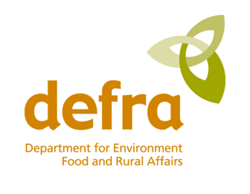 Recycling rate for “waste from households” in England in April to June 2020 dropped 3.4 percentage points from 48.4% to 45%, displaying impact of the COVID-19 pandemic on recycling in the country. Data from the Department for Environment, Food and Rural Affairs, or Defra, revealed disorder in local authority waste collections resulting from the first national lockdown. During the period covered by the report, total waste from households declined 3.3% to 5.7 million tonnes from 5.9 million tonnes. Also, total amount of waste recycled dropped from 2.9 million tonnes to 2.6 million tonnes.[Image Credit: © Department for Environment, Food and Rural Affairs]
Recycling rate for “waste from households” in England in April to June 2020 dropped 3.4 percentage points from 48.4% to 45%, displaying impact of the COVID-19 pandemic on recycling in the country. Data from the Department for Environment, Food and Rural Affairs, or Defra, revealed disorder in local authority waste collections resulting from the first national lockdown. During the period covered by the report, total waste from households declined 3.3% to 5.7 million tonnes from 5.9 million tonnes. Also, total amount of waste recycled dropped from 2.9 million tonnes to 2.6 million tonnes.[Image Credit: © Department for Environment, Food and Rural Affairs]
Copyright 2026 Business360, Inc.

